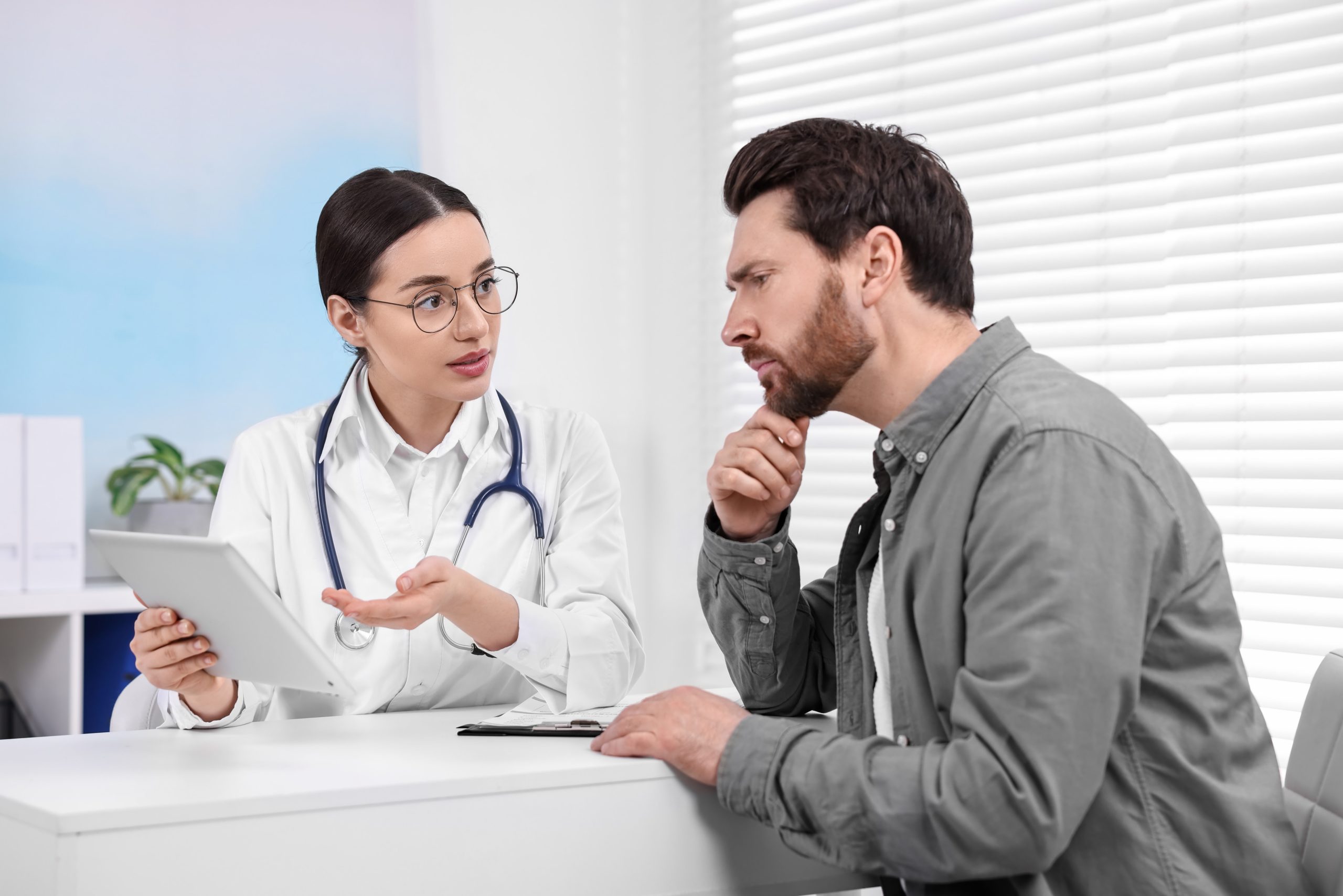

Testicular atrophy (shrinkage) – Causes, Diagnosis & Treatment at Emirates Hospital Group
Testicular atrophy, or shrinkage of the testicles, can be a concerning symptom with various potential underlying causes. Understanding these causes, along with the diagnostic process and treatment options, is important. It’s crucial to consult a healthcare professional for any noticeable testicular shrinkage, as early diagnosis and treatment are essential for optimal outcomes and to prevent complications.
Causes:
- Hormonal Imbalances: Low testosterone levels (hypogonadism) can lead to testicular atrophy. This can be due to primary testicular failure or problems with the pituitary gland.
- Varicocele: Enlarged veins within the scrotum can raise the temperature around the testicle, potentially affecting sperm production and causing shrinkage.
- Infection: Certain infections, such as orchitis (inflammation of the testicle), can damage the testicle and lead to atrophy.
- Testicular Torsion: While primarily causing severe pain, if testicular torsion is not treated promptly, it can lead to testicular death and shrinkage.
- Trauma: Injury to the testicles can cause damage and subsequent atrophy.
- Certain Medications: Some medications, such as anabolic steroids, can affect testicular size and function.
- Aging: Some degree of testicular shrinkage can occur with age as part of the natural aging process.
- Cryptorchidism (Undescended Testicle): If a testicle fails to descend into the scrotum during childhood, it can become atrophic.
- Cancer: Testicular cancer, while often presenting as a painless mass, can sometimes be associated with testicular shrinkage.
Diagnosis:
- Physical Exam: Careful examination of the scrotum and testicles, noting size, consistency, and any other abnormalities.
- Patient History: Gathering information about the onset of shrinkage, any other symptoms, past medical history, medication use, and any history of injury or infection.
- Hormone Levels: Blood tests to measure testosterone and other hormone levels.
- Semen Analysis: May be performed to evaluate sperm count and quality, especially if fertility is a concern.
- Ultrasound: A common imaging test to visualize the testicles and surrounding structures, helping diagnose conditions like varicocele or tumors.
Treatment:
- Hormone Replacement Therapy (HRT): If low testosterone is the cause, testosterone replacement therapy may be recommended.
- Varicocele Repair: If a varicocele is contributing to testicular atrophy, surgery or embolization (a procedure to block the affected veins) may be considered.
- Infection Treatment: Antibiotics are prescribed to treat infections like orchitis.
- Testicular Torsion: Requires immediate surgical intervention to restore blood flow to the testicle.
- Medication Adjustment: If medication is suspected to be the cause, the doctor may adjust the dose or recommend an alternative.
- Surgery: Surgery may be necessary for undescended testicles or testicular cancer.
- Treatment of Underlying Cause: If the atrophy is due to an underlying medical condition, treatment will be directed at that condition.
Important Considerations:
- It’s important to consult a healthcare professional for any noticeable testicular shrinkage. Early diagnosis is crucial, especially for conditions like testicular cancer or testicular torsion.
- Do not attempt to self-treat testicular atrophy. Proper diagnosis is essential for effective treatment.
- If you experience sudden, severe testicular pain, seek immediate medical attention as this could be a sign of testicular torsion, a medical emergency.
Related Treatments
Request an appointment
Please complete the details and we will book you shortly.
